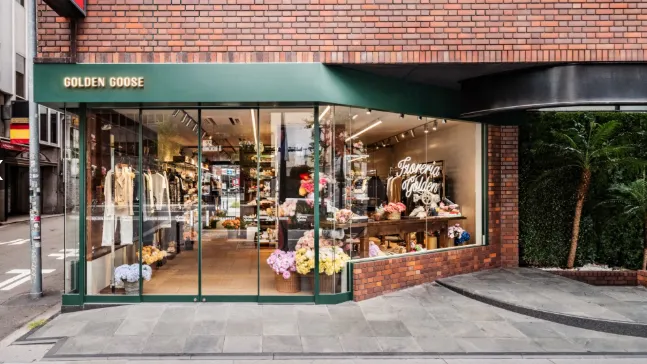Vacation spending in Asia flying high
It is hard to separate shopping from tourism when it is time for holidays, which explains why travel retail is booming at a steady rate in Asia-Pacific goes on a journey of finding out the state of the sector and how close collaboration between retailers and brands can boost sales year on year.

With 400 retail and service stores and 140 F&B outlets across Changi’s four terminals, the airport recorded more than S$2.5 billion (US$1.8 billion) in retail sales — a new all-time record — with more than 57 million transactions last year.
The travel and tourism industries have been growing at a fast pace and experiencing major developments over the years driven by consumers with increased disposable income and improved living standards. Coupled with rapid urbanisation and affordable travel choices globally, this has left a significant impact on travel retail with room to create more lucrative opportunities in the days ahead.
The travel retail market is set to grow to US$85 billion in 2020, according to Generation Research, which specialises in analysing and documenting the global duty-free and travel retail market.
In particular, emerging economies, such as Asia-Pacific and Latin America, Middle East and Africa (LAMEA), have seen a boost in international tourist arrivals.

It has been observed that luxury wines and spirits are highly preferred by the international passengers, while there is also a strong growth in sales of fragrances and cosmetics in the Asia-Pacific market.
Erik Juul-Mortensen, president of Tax Free World Association (TFWA), shared that Asia-Pacific is continuing to lead the market in duty-free and travel retail, with a 45% share of global sales. “The latest report from Generation Research shows that the region is continuing to go from strength to strength, with the Asia-Pacific market delivering impressive sales of US$30.6 billion last year, an increase of 11.6% on the previous year.
“This performance is being driven largely by two defining factors. Firstly, our potential customer base continues to grow, with recent figures from Airports Council International showing the number of international passengers growing at a robust rate of 8.4%. Within Asia-Pacific, a number of airports are outperforming this figure, with the number of international customers at, for example, Kuala Lumpur International Airport growing by 14.7% and Tokyo Narita Airport by 13.6%,” he explained.
What are travellers buying?
According to a report published by Allied Market Research, titled Travel Retail Market by Product and Channel: Global Opportunity Analysis and Industry Forecast, 2017-2023, wines and spirits is the second largest revenue contributor in travel retail market. This is because consumption of wines, particularly luxury wines and spirits, has recorded considerable growth in the past few years.

It has been observed that luxury wines and spirits are highly preferred by the international passengers, which leads to the growth of the market.
Juul-Mortensen noted that TFWA is seeing strong growth in sales of fragrances and cosmetics in the Asia-Pacific market. “The Generation Research figures show year-on-year sales of fragrances and cosmetics in the region increased 19.9% in 2017, growing to US$14 billion. Wines and spirits have also proven popular shopping basket items, with sales up 12.9% to US$3.9 billion over the same period,” he said.
Fashion and accessories were also strong sales performers among Asia-Pacific passengers, registering an increase of 6.2% to US$4.5 billion. Similarly, travellers spending on watches, jewellery and fine writing increased by 7.7% to US$2.6 billion in the region.
It is noted that some of the leading beauty companies such as Estee Lauder, L’Oréal, Rituals Cosmetics and Revlon are expanding their businesses by opening outlets at every international airport with an exclusive and wide range of fragrances and skincare products.
Where are travellers shopping?
When it comes to airports, it is common to see the hubs stepping up their innovative retail campaigns to deliver a rewarding shopping experience and encourage spending among passengers. For example, Singapore’s Changi Airport makes one shopper a millionaire every year with its ‘Be a Changi Millionaire’ programme. The anchor promotion has crowned eight millionaires since 2010.

Singapore’s Changi Airport makes one shopper a millionaire every year with its ‘Be a Changi Millionaire’ programme.
Additionally, iShopChangi — the airport’s e-commerce portal — offers passengers the convenience of purchasing online between 30 days and 18 hours before their departure flights, and picking up their buys at any terminal. Collection-on-arrival is also available for cosmetics and perfumes, as well as wines and spirits.
With more than 14,000 items from over 600 brands on sale, the portal recorded a 60% year-on-year growth for online sales last year with beauty and electronics emerging as the top product categories.
Changi Airport Group (CAG) revealed that retail is an important part of Changi Airport’s operations, contributing to about half of CAG’s total revenue. With 400 retail and service stores and 140 F&B outlets across Changi’s four terminals, the airport logged more than S$2.5 billion (US$1.8 billion) in retail sales — a new all-time record — with more than 57 million transactions last year.
In 2016, airports accounted for the maximum market revenue and it is projected to grow at a CAGR of 9% during the forecast period, according to Allied Market Research. However, retailers should not overlook other important travel retail locations besides airports. “A growing number of Asian passengers are seeking different travel experiences, which is leading to renewed interest in retail locations in addition to airports, such as ferries and cruises,” Juul-Mortensen opined.
He observed that travel retail brands are recognising this and have been expanding their remit into newer markets such as China, where the cruise sector is now expected to rise to US$76 billion by 2019. “We are also seeing cruise companies launching ships into home ports in places such as Singapore and Hong Kong to meet demand from a new wave of younger passengers.
“In addition to airports, ferry and cruise lines in international traffic in several Asia-Pacific countries also have a number of downtown duty-free stores for travellers who want to shop in town as part of their stay,” he said.
Additionally, downtown duty-free stores offer a wealth of products that are in demand by travellers and foreign visitors, and shoppers are able to spend time to browse and shop at their leisure there. Travel retail in downtown and hotel shops is expected to grow at the highest CAGR of 9.4% from 2017-2023, Allied Market Research reported.
Future of travel retail
The report went on to say that key players in travel retail industry focus to expand their business operations in emerging economies by adopting various strategies, such as acquisition and contact/agreement.

iShopChangi — the airport’s e-commerce portal — offers passengers the convenience of purchasing online between 30 days and 18 hours before their departure flights, and picking up their buys at any terminal.
Juul-Mortensen added that the rapid growth of digital technology and its impact on the duty-free and travel retail market, particularly in the Asia-Pacific region, should not be ignored.
“In China, for example, we are seeing the use of smart digital payment solutions that are making it easier and more convenient for customers to shop with duty-free and travel retailers.
“The use of digital technologies to collect and manage data is also giving forward-thinking retailers opportunities to use this information to communicate directly with travellers and to create tailored experiences for passengers, which is further enhancing the travel experience.
“The thinking about how technology can be used to deliver an even better retail experience should definitely be a key focus for all Asia-Pacific travel retailers,” he advised.
China has also been cited by Allied Market Research as the major operator in the Asia-Pacific travel retail industry and accounted for around 65% of the market share in 2016.
Travel retail in Asia is set to continue progressing in future and Juul-Mortensen is confident it will continue to grow but it will also have to make some adjustments to keep up with the times. “Based on current trends and an increase of new travel opportunities in the region, I expect the Asia-Pacific market will continue to grow and further strengthen its position as a dominant force in duty-free and travel retail.
“However, this growth will not come without hard work and our industry will need to adapt quickly to keep pace with the digital revolution and the rise of e-commerce and m-commerce,” he concluded.
Giving what travellers want
TRAVEL retail offers a great distribution channel for brands and Erik Juul-Mortensen, president of Tax Free World Association (TFWA), believes this has come from a combination of close collaboration between retailers and brands — by developing excellent retail operations and understanding exactly who their customers are and what products and brands they are looking for.
“Duty-free and travel retail stores provide an excellent opportunity to showcase a wide variety of products and brands adapted to the profile of the travelling consumer. In the Asia-Pacific market, for example, we have been working closely with Asia-Pacific Travel Retail Association (APTRA) to gain insight into the shopping behaviour of passengers using, in this case, Hong Kong International Airport.
“In turn, this helps us to pinpoint which brands and campaigns work well in this specific environment. Brands may compete for market share and retailers for concessions, but our basic interests are fundamentally aligned and we are able to achieve many things when we work together as one industry,” he said.
Muneerah Bee



















 Advertise
Advertise






